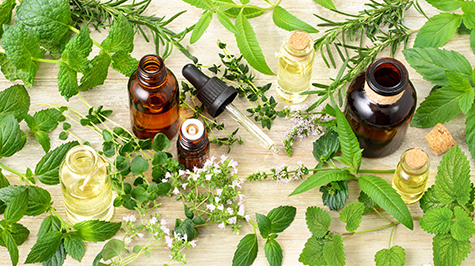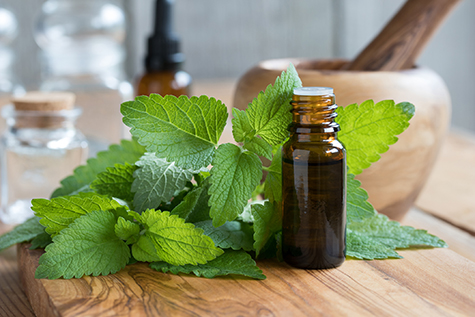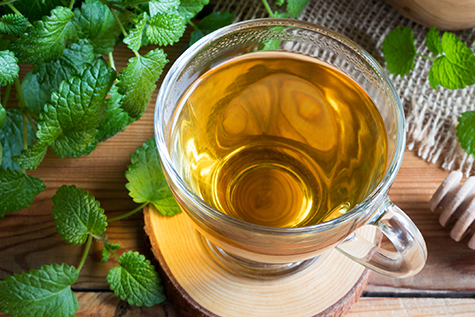Lemon Balm Is the ‘Bomb’ for Stress

Stress comes in so many forms and affects the body in different ways. There’s emotional stress, schedule or time-related stress, work or school related pressure, and even stress on the body from environmental toxins or other damage. A lot of this is unavoidable – it’s part of daily life – and the body has ways to adapt to it but if stress builds up, it can lead to disease, inflammation and unbalanced hormones. There are ways to help the body naturally adapt to stress in all forms and the powerful herb lemon balm has been used for centuries for this reason. A perennial herb native to Southern Europe and Asia, it’s natural lemon-scent gives it its name. The leaf and leaf oil are the parts of the herb that contain medicinal properties and potent antioxidants.
Medicinally, lemon balm has been used for:
- Calming anxiety and stress
- Treating insomnia, dyssomnia, and restlessness
- Soothing gastrointestinal problems: vomiting, general stomach upset, bloating, flatulence, and colic
- Reducing pain: headache, toothache, menstrual cramps
- Treating psychological conditions: melancholia, attention deficit-hyperactivity disorder (ADHD), and Alzheimer’s disease
When used in foods as a flavoring or in tea, lemon balm is generally recognized as safe and has few if any reported negative side effects. When used in a more concentrated form such as an extract, it has been used safely in humans for up to four months at a time. The best research using lemon balm is certainly for treating anxiety. 0.23mL/kg body weight effectively reduced nervousness, excitability, and emotional liability in patients with anxiety when used for 8 weeks. Similarly, it is used to treat stress. Using a 600mg extract in a single dose increased calmness and alertness in adult patients during a stress test. Other studies added the extract to foods and beverages to reduce anxiety. It can also be used to reduce anxiety during medical or dental exams. Note that doses lower than 3mg/kg weren’t effective in studies.
You may often find lemon balm mixed with other calming herbs, especially valerian or passion flower, for supporting sleep and lowering anxiety. Studies show positive effects from these preparations so they may be a very viable option for you if you suffer from these conditions.
Lemon balm is also commonly used to help treat stomach upset and nausea. Again, it is commonly mixed with other soothing herbs such as peppermint, milk thistle, caraway and licorice but the results appear very promising in studies.
There are a couple of potential side effects of lemon balm to note. It can actually increase appetite and it can also cause nausea or vomiting in some people. There are some moderate potential interactions with other depressants such as alcohol, central nervous system depressants, as well as blood sugar lowering medications used for treating diabetes and thyroid hormones.
Have you ever used Lemon Balm for stress or anxiety? Let us know about your experience in the comments.
Resources
Natural Medicines Database. Mullein. https://naturalmedicines.therapeuticresearch.com/databases/food,-herbs-supplements/professional.aspx?productid=437. Updated 2/28/19. Accessed 4/18/19.
E Barreto G, Avila-Rodriguez M, Foitzick M, Aliev G, Echeverria V. Advances in medicinal plants with effects on anxiety behavior associated to mental and health conditions. Current medicinal chemistry. 2017 Feb 1;24(4):411-23.


